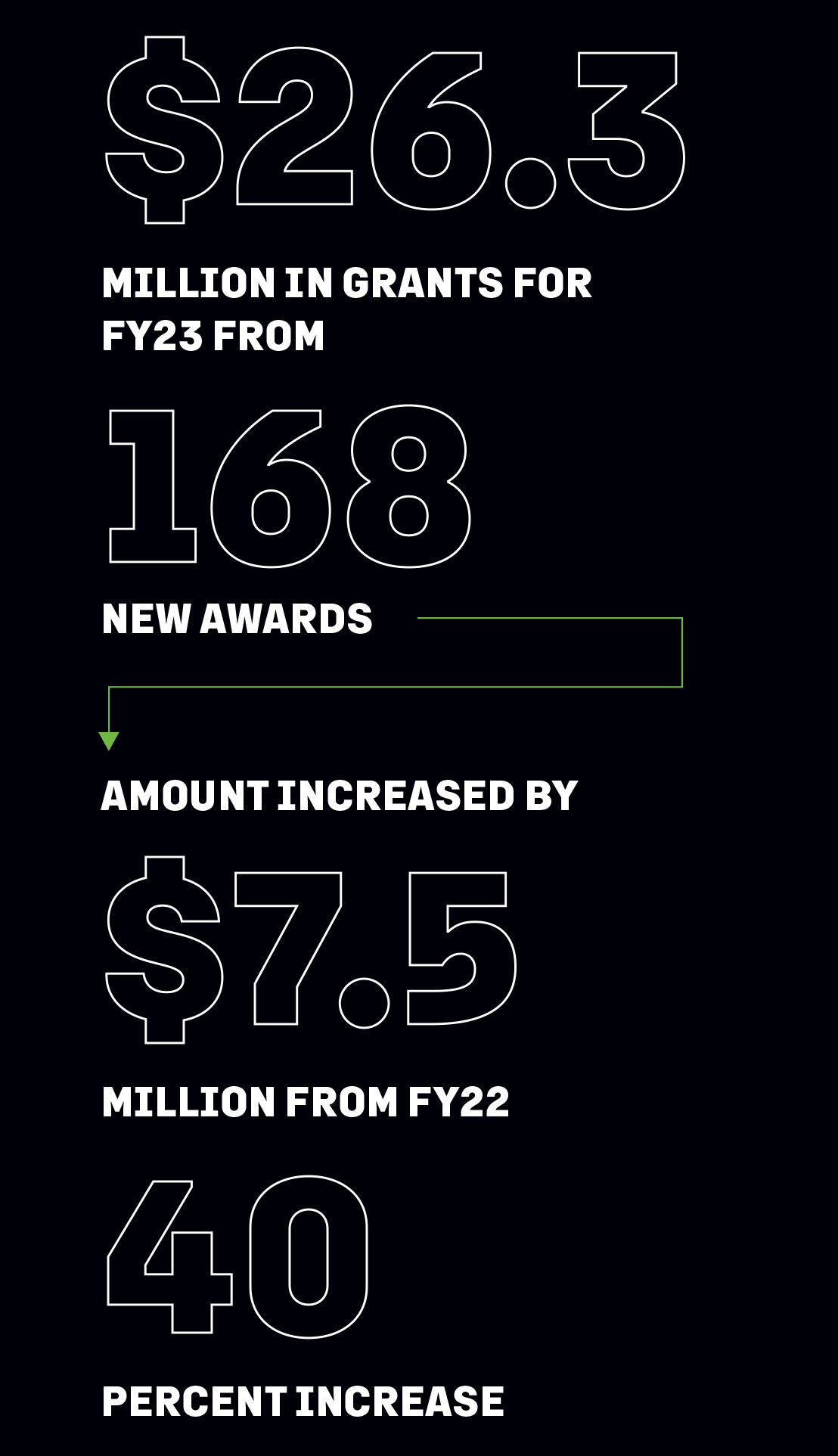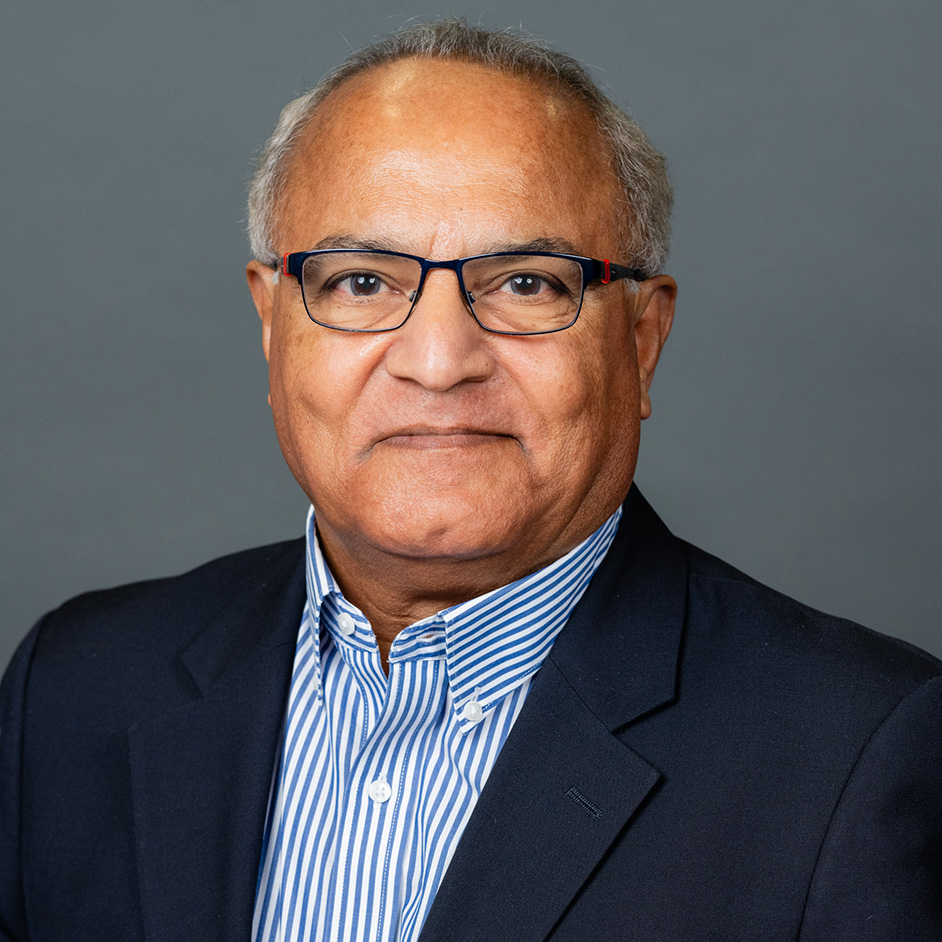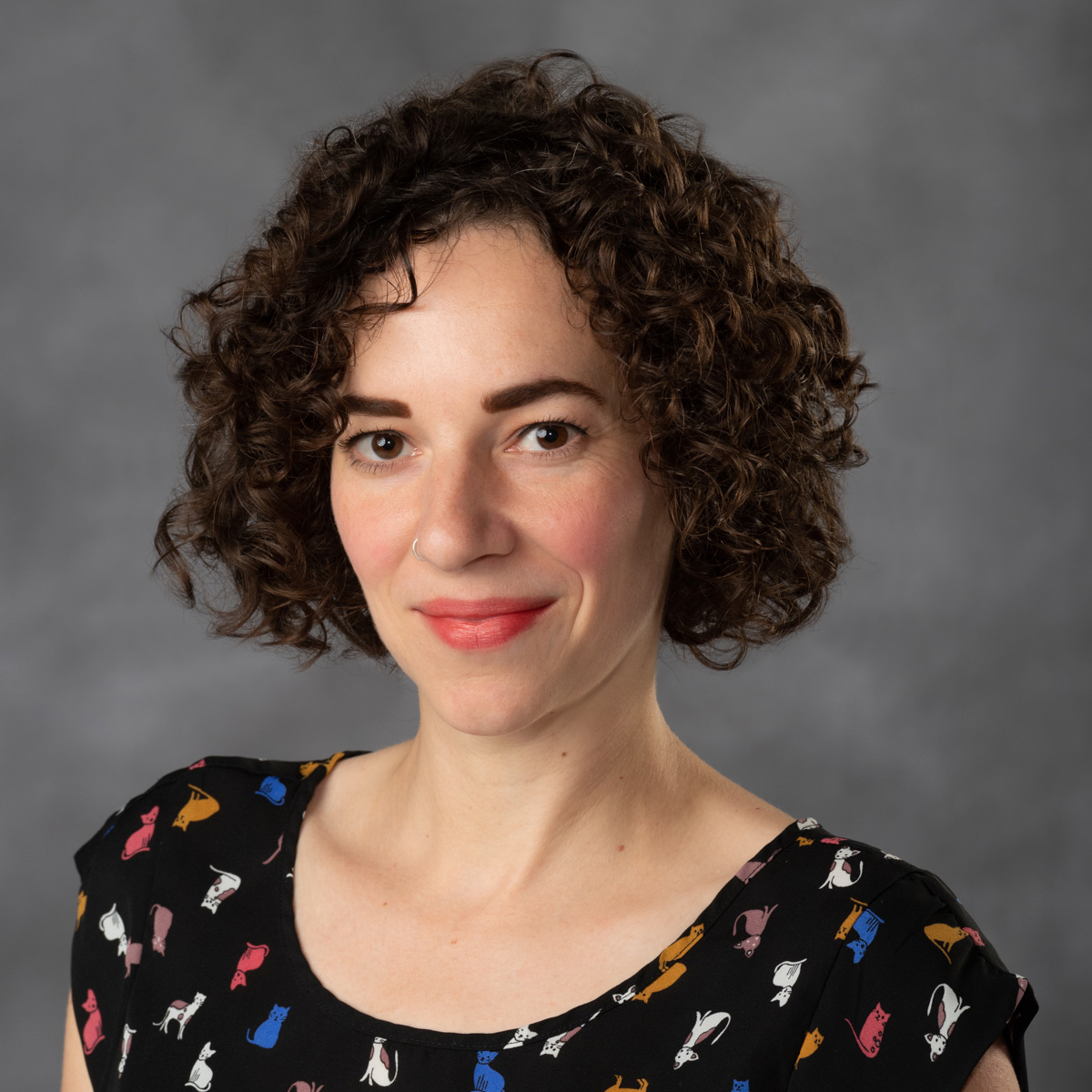Grant Highlights
When not in the classroom, our faculty can be found participating in ground-breaking research. Here is a sampling of some of the many grants funded during the 2022-23 fiscal year.

Emanuele Alves, Ph.D. (Forensic Science), was awarded $170,000 by the National Institute of Justice of the Department of Justice. Alves is developing a THC breathalyzer using colorimetric detection to be applied in driving under the influence of drugs (DUID) monitoring in the U.S.
Carolyn Eastman, Ph.D. (History), received $60,000 from the National Endowment for the Humanities for support of her next book project on the Yellow Plague of the 1790s. The ultimate goal of “A Plague in New York” is to make sense of an epidemic through the people of New York who experienced it during the late 1700s. Eastman has also received an NEH Digital Projects for the Public grant with her co-PI from Northwestern University Qatar to develop a digital learning platform for middle and high school students entitled “The People who Created ‘America’s City’ (New York, 1770-1800).” This platform will teach students how to think historically while also learning more about the diverse ways that many people of different backgrounds experienced the American Revolutionary era.

M. Samy El-Shall, Ph.D. (Chemistry), received $569,000 from Shell Global Solutions (US), Inc. The project aims to discover highly efficient catalyst systems for the production of triptane and neohexene as high-octane additives for the development of a green fuel economy and as building blocks for fine chemicals and advanced organic materials.
Brian Fuglestad, Ph.D. (Chemistry), received an approximately $1.9 million Maximizing Investigators’ Research Award (MIRA) from the National Institute of General Medical Sciences of the National Institutes of Health. This prestigious award will allow Fuglestad to further study peripheral membrane proteins, highly important mediators of biology and disease, with a focus on creating new tools to better understand and to enable inhibition for this class of proteins.
Christopher Gough, Ph.D. (Biology), was awarded $170,000 by NASA for the creation of a “Rice Rivers Center NASA Calibration and Validation Reference Network.” The VCU-NASA partnership plays a critical role in validating the technology used to map land-use, identify greenhouse gas hot-spots, and characterize ecosystem health and productivity at local to global scales, part of a larger NASA Surface Biology and Geology mission.
Ann Haynos, Ph.D. (Psychology), was awarded more than $2.7 million from the National Institute of Mental Health of the National Institutes of Health for a project that seeks to identify distinct biological and behavioral decision-making processes that keep people with anorexia nervosa and other related psychiatric disorders (e.g., obsessive-compulsive disorder) stuck pursuing harmful goals with the aim of designing more effective treatments.
Puru Jena, Ph.D. (Physics), received $240,000 from the Pacific Northwest National Laboratory. Jena is developing stable sulfide-based anode-free and anode-limited all-solid-state lithium batteries that should address the major challenges for next-generation batteries.

Allison Moore, Ph.D. (Mathematics), was awarded $294,000 from the National Science Foundation. Moore was awarded the funding to explore entanglement and knotting in low-dimensional topology, with specific aims focused on applications of immersed curve interpretations of Khovanov and Floer theoretic tangle invariants; the relationship between invariants of links and three-manifolds; and new connections between tangles, spatial graphs and biopolymers.
Jason Reed, Ph.D., (Physics) was awarded $459,000 by the National Institute of Child Health and Human Development of the National Institutes of Health for his research in a new diagnostic tool for rapid detection and characterization of repeat sequences in inherited diseases. This new tool could eliminate inefficient and expensive clinical genetics testing strategies.
Suzanne Ruder, Ph.D. (Chemistry), was awarded $444,000 from the National Science Foundation to develop scalable classroom strategies to help instructors assess student skills, to help students self-assess their own skills, and to generate and deliver actionable feedback, all components that are important for scientists in their preparation for future STEM careers.
Bruch Rybarczyk, Ph.D. (Psychology), received $447,000 from the Health Resources and Services Administration of the Department of Health and Human Services to broaden and refocus the Primary Care Psychology Training Collaborative in four critical areas: the training of an expanded psychologist workforce; increased access to integrated primary care services among underserved populations in Richmond; expanded training and treatment for opioid and other substance use disorders; and training of the psychology workforce in integrated telehealth services for rural underserved communities.

Joshua Sieber, Ph.D. (Chemistry), received a prestigious National Science Foundation Faculty Early Career Development (CAREER) Program award for his research developing Cu-catalyzed stereoselective reductive coupling reactions. This $600,000 award will fund research into the development of new tools for the preparation of oxygen- and nitrogen-rich carbon compounds due to their utility in pharmaceutical development.
Katherine Tibbetts, Ph.D. (Chemistry), was awarded $799,000 by the Department of Defense for her research in dynamics and mechanisms of CO2 photoreduction on rationally designed nanocatalysts. Weining Wang, Ph.D. (Mechanical and Nuclear Engineering), Massimo Bertino, Ph.D. (Physics), and Puru Jena, Ph.D. (Physics), are co-PIs on the grant.
Cecelia Valrie, Ph.D. (Psychology), received $420,000 from the National Institute of Dental and Craniofacial Research of the National Institutes of Health. Valrie’s project will produce and test the first dynamic mathematical modeling framework for predicting pediatric sickle cell disease pain features by incorporating mHealth variables with the goal of improving pediatric sickle cell disease pain management.

Xeuwei Wang, Ph.D. (Chemistry), was awarded $1.5 million from the National Heart, Lung, and Blood Institute of the National Institutes of Health. Wang’s project aims to develop catheter lock solutions containing a natural prodrug, S-nitrosoglutathione, to generate nitric oxide, a natural drug with potent antimicrobial and antithrombogenic properties.
Julie Zinnert, Ph.D. (Biology), was awarded $119,000 by Moravian University. Zinnert’s primary role in the proposed work is to provide mentorship to Natasha Woods, Ph.D., an assistant professor at Moravian University, in building a sustainable research lab and to broaden the research experience of Moravian University undergraduates through training in field and lab methods and engaging with VCU graduate students. Zinnert will also provide field and logistical support as well as geospatial analysis of the field study.